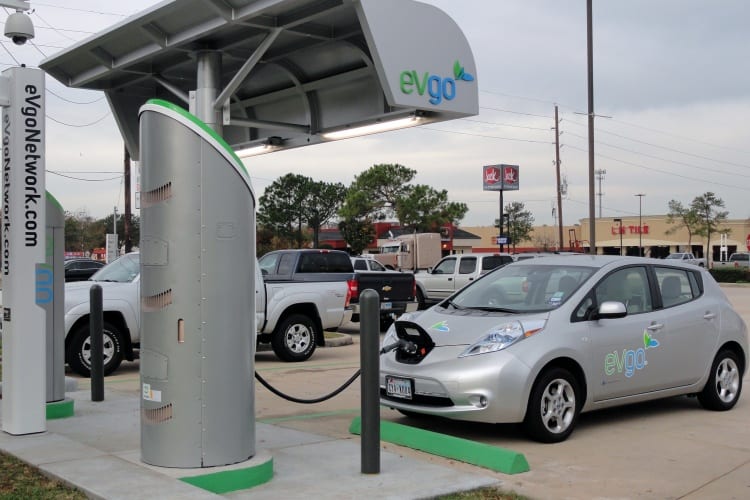 Andrew Wade, senior reporter
Andrew Wade, senior reporter
Plenty of food for thought from the automotive sector this week. On Thursday, news came through that Nissan had committed to build the new Qashqai and X-Trail SUV at the company’s Sunderland plant. It’s a move that should secure 7,000 jobs in the North East for the near future, but it inevitably raises questions as to what commitments have been given to the Japanese OEM to retain its loyalty.
The automotive industry has been one of the UK’s big manufacturing success stories over the past decade, but it’s a sector particularly exposed to the post-Brexit uncertainty we now face. Around 80 per cent of the 475,000 vehicles produced annually at the Sunderland plant are exported, and the prospect of tariffs and customs had Nissan and other carmakers spooked. The international nature of most automotive supply chains has only served to complicate matters even further.

Business secretary Greg Clark has been quick to deny that a compensation package was offered to Nissan, but The Times is reporting (£) that Clark wrote a letter to the company’s board in which he promised the UK would “remain competitive”. What exactly this means is unknown at this point, but one must imagine that Nissan CEO Carlos Ghosn required more than a gentlemen’s handshake before committing to the multimillion-pound production investment.
However, on Thursday night’s Question Time, Clark indicated that no financial compensation or state aid had been offered: “There’s no cheque book. I don’t have a cheque book,” he said.
“The important thing is that they know this is a country in which they can have confidence they can invest. That was the assurance and the understanding they had and they have invested their money.”
Whatever guarantees have been given, one can safely assume they will apply across the entire UK automotive industry, and that Nissan has not received a sweetheart deal. To be fair to the government, they were between the proverbial rock and hard place here. Allow the uncertainty to continue, and sooner or later an OEM was bound to pull the plug, which could have triggered a domino effect. How much it ends up costing the taxpayer will no doubt depend on how Brexit negotiations unfold. For now though, it seems state-interventionism is a policy this Conservative government is willing to pursue. It would be interesting to know what Mrs Thatcher would make of it all.
Elsewhere, this week also saw the Department for Transport announce plans to encourage the adoption of low-emissions vehicles, including increased access to charging points and hydrogen refuelling stations. The number of new ultra-low emission vehicles registered has risen by 250 per cent in just two years, and transport secretary Chris Grayling has set a goal for all new cars and vans to be zero emission by 2040.

As many of our readers were quick to point out in the comments for this week’s poll, ‘zero emission’ can be a misleading term. Electric and hydrogen-powered vehicles may not emit on the road, but generating the thing that powers them usually does. In this respect, emissions are simply being moved from one place to another.
For some, this seems to devalue the entire project. Why bother with low-emission vehicles when power stations are still polluting to facilitate them? But power generation is gradually moving away from a reliance on hydrocarbons, and the automotive sector needs to follow suit. Yes, we may be a long way from a truly ‘zero carbon’ fleet on our roads, but investment needs to be made now so that the transport and energy sectors can decarbonise together. The infrastructure for EVs and hydrogen vehicles cannot be expected to appear overnight.
Likewise, the automotive sector must make brave choices in preparing for a post-petrol world. We saw a particularly brave one from Audi this week, when it announced it would be leaving the World Endurance Championship in favour of participating in Formula E. For a team that has dominated endurance racing, winning at Le Mans 13 times since the turn of the millennium, this is a hugely symbolic move.

"As our production cars are becoming increasingly electric, our motorsport cars, as Audi's technological spearheads, have to be even more so," said Audi chairman Rupert Stadler.
With Citroën, Jaguar and Renault already involved, and Mercedes also weighing up an option to join, the future for Formula E looks bright. The technology being developed there should hopefully filter down to production vehicles, and the increased profile of the nascent racing series should hep push EV adoption.
So a good week all round for the automotive sector, and a positive week for UK industry. Long may it continue.





Swiss geoengineering start-up targets methane removal
Several rather dubious statistics in this report. IF methane had 120× the thermal effect of CO2 that would be TWO orders of magnitude. Two is not...